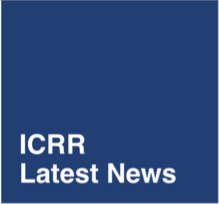We are happy to inform you that the call for registration and abstract submission for this year’s Kashiwa Dark Matter Symposium 2022 has now been opened. The Kashiwa Dark Matter Symposium 2022 hosted by ICRR will take place in hybrid style (on-site and online) from Tuesday, November 29 to Friday, December 2, 2022.
We would like to share three news:
1. Registration and abstract submission page and deadlines.
2. The time schedule and on-site venue (see below).
3. Confirmed invited speakers (see below).
REGISTRATION AND ABSTRACT SUBMISSION:
To join the Kashiwa Dark Matter Symposium 2022, please register at
https://2022.kashiwa-darkmatter-symposia.org/registration.html.
The registration deadline is Nov. 4, 2022, 23:59 UTC.
For on-site participation, a registration fee of 2000 Japanese Yen is charged (in cash at check in). Please note that due to preventing the spread of COVID-19, on-site participation is limited to 60 persons on a first-come-first-serve basis. For online participation, there is neither a registration fee nor a limitation of participants. We encourage especially young postdocs and students to participate and to present their work at the symposium. Abstracts for oral and poster presentations can be submitted via https://2022.kashiwa-darkmatter-symposia.org/registration.html.
The abstract submission deadline is Oct. 14, 2021, 23:59 UTC
Oral presentations can be given in person or online. Posters will only be presented online, and include a max. 2-minute pre-recorded flash-talk. Oral presentations are 10 minutes with 3 minutes Q&A.
Please note that you can register earlier and add an abstract submission later at any time until the abstract submission deadline.
TIME SCHEDULE AND ON-SITE VENUE:
The symposium will take place between
15:00 and 19:00 JST (6:00 to 10:00 UTC) on Nov. 29
9:30 and 19:00 JST (0:30 to 10:00 UTC) on Nov. 30 and Dec. 1
9:30 and 13:00 JST (0:30 to 4:00 UTC) on Dec. 2
The on-site conference venue will be the Kashiwa Library Media Hall of the University of Tokyo, Kashiwanoha Campus (5-1-5, Kashiwanoha, Kashiwa-shi, Chiba, 277-8584, Japan).
For more information, please visit the event webpage:
https://2022.kashiwa-darkmatter-symposia.org/
INVITED SPEAKERS (as of September 15th, 2022):
– Khai Bui (Kavli IPMU, the University of Tokyo)
– Regina Caputo (NASA)
– Shion Chen (The University of Tokyo)
– Michele Doro (University of Padova)
– Elisa G. M. Ferreira (Kavli IPMU, the University of Tokyo)
– James Frost (Oxford University)
– Motoko Fujiwara (Technical University of Munich)
– Koji Ishidoshiro (Tohoku University)
– Aaron Manalaysay (LBNL)
– Hironao Miyatake (KMI, Nagoya University)
– Kazunori Nakayama (Tohoku University)
– Lina Necib (MIT)
– Hafizh Prihtiadi (IBS)
– Yin Wen (Tohoku University)
SCIENTIFIC RATIONALE:
We are happy to announce the fourth Kashiwa Dark Matter symposium at the Institute for Cosmic Ray Research of the University of Tokyo. For the first time since 2019, the symposium will take place again in-person at the University of Tokyo Kashiwa Library Media Hall. The symposium will be held fully hybrid, allowing a worldwide inclusive and eco-friendly participation in an ongoing pandemic.
The Kashiwa Dark Matter symposium series brings regularly together international researchers from all relevant experimental and theoretical fields in current and future dark matter searches. This year, the symposium will include a focused session on searches for light Dark Matter from the keV scale down to μeV and beyond, including theoretical aspects and recent developments of detector technologies.
MAIN TOPICS:
– Dark matter theory
– Collider experiments for dark matter searches
– Dark matter direct detection experiments
– Dark matter indirect detection experiments
– Astrophysical and cosmological constraints on dark matter
– Searches for light Dark Matter from the keV scale down to μeV and beyond
We are looking forward the fourth edition of the Kashiwa Dark Matter Symposia. Also, please forward this information to any interested colleagues.
On behalf of the Organizing Committee:
Kento Asai (ICRR, the University of Tokyo)
Shoji Asai (The University of Tokyo)
Tobias Binder (Kavli IPMU, the University of Tokyo)
Elisa G. M. Ferreira (Kavli IPMU, the University of Tokyo)
Masahiro Ibe (ICRR/Kavli IPMU, the University of Tokyo)
Kohei Hayashi (Ichinoseki College/ICRR/Tohoku; co-chair)
Shunichi Horigome (IPMU, the University of Tokyo)
Moritz Hütten (ICRR, the University of Tokyo; co-chair)
Masahiro Kawasaki (ICRR/Kavli IPMU, the University of Tokyo)
Shigeki Matsumoto (IPMU, the University of Tokyo)
Kentaro Miuchi (Kobe University)
Shigetaka Moriyama (ICRR/Kavli IPMU, the University of Tokyo)
Koji Terashi (The University of Tokyo/CERN)
Masahiro Teshima (ICRR/Max Planck Institute for Physics)
Masaki Yamashita (Kavli IPMU, the University of Tokyo)
Tatsuo Yoshida (Ibaraki University)
Midori Sugahara (Secretary, ICRR)
This workshop is supported in part by
– MEXT Grant-in-Aid for Scientific Research on Innovative Areas:
19H05802 for Shigetaka Moriyama (co-I, main hosts)
18H05542 for Masahiro Ibe (PI)
– Grant-in-Aid for Scientific Research (S):
17H06131 for Masahiro Teshima (PI, main hosts)
– Grant-in-Aid for Scientific Research (A):
22H00127 for Masaki Yamashita (PI)
20H00153 for Shigeki Matsumoto (co-I)
– Grant-in-Aid for Scientific Research (B):
20H01895 for Shigeki Matsumoto (PI), Kohei Hayashi (co-I)
– Grant-in-Aid for Scientific Research (Early-Career Scientists):
21K13909 for Kohei Hayashi (PI)
– Grant-in-Aid for Transformative Research Area A (Open-solicited Research):
21H05447 for Kohei Hayashi (PI)
– The grant for ICRR’s Fiscal Year 2022 Inter-University
Research Program (PI: Moritz Hütten)





